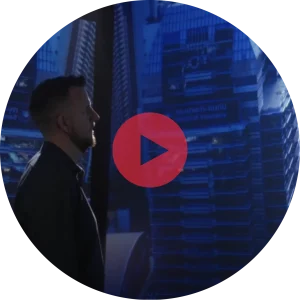Overview
Built for the future
Sustainability is here to stay.
More and more businesses in the built environment are adopting sustainability policies and practices. They’re aligning their business models and processes with the UN Sustainable Development Goals in mind, and there’s a real hunger for sustainability talent.
This presents an opportunity to be at the forefront of long-term change and innovation in this shifting field.
Change doesn’t happen just by keeping up with current affairs. Senior leaders and sustainability experts need to be future-thinking and challenge what has gone before or been set in strategy. You may know what your organisation has been doing – but do you know if it’s the right thing to do?
UCEM’s MSc Innovation in Sustainable Built Environments will upskill your critical thinking and enable you to create long-term strategies so that your actions, input, and understanding of sustainability stay valuable, both now and in the future.

About this degree
Programme details
The MSc Innovation in Sustainable Built Environments was designed as a response to the complex challenges faced by the built environment, an industry known for its fragmentation and slow adaptation. That’s why collaboration and interdisciplinary partnerships are emphasised in this programme, demonstrating that collective efforts across organisations are the only way to address sustainability challenges effectively.
While net-zero and carbon emissions are a significant concern, the MSc extends its focus to encompass all facets of sustainability. This is in alignment with the UN Sustainable Development Goals. This holistic approach emphasises the integration of the socio and the technical elements, ensuring a comprehensive understanding of sustainable built environments.
Through live peer discussions and lectures, you will develop the expertise needed to drive change through challenge, literacy, and leadership. You’ll dive deep into the current sustainability discourse and go beyond the superficialities surrounding the topic, enabling you to ask the right questions at the right time.
Equipped with critical skills and influential language, you will build your capability to lead your organisation and navigate complex sustainability challenges, combating mainstream perceptions and transforming theory into action.
Course accreditations

This course is accredited by IEMA. IEMA is the professional body for everyone working in environment and sustainability. This course entitles students to FREE student membership for the duration of the course and on successful completion you qualify for GradIEMA. Graduate membership is a launchpad for future leaders within environment and sustainability and offers a range of benefits to support you throughout your career. You can then “fast track” to Practitioner Membership (PIEMA) following successful completion of the work-based assessment of competence.
Structure
Module delivery structure
This is a part-time programme, offered at three qualification levels, as a full MSc (2 years), PG Diploma (18 months) and a PG Certificate (1 year). Get in touch with our enquiries team if you would like more information on these levels of study. The programme will be delivered online through live peer engagement sessions, guided study and activities, plus independent learning and reading.
The MSc Innovation in Sustainable Built Environments route is 180 credits:
You will study all modules including the workbased project or research dissertation
The PG Diploma Innovation in Sustainable Built Environments route is 120 credits:
You will study Realities of Sustainability, Paradigms of Sustainability, Sustainable Infrastructure, Sustainable Materials, Processes and Technologies plus two electives from the Year 2 pathways
The PG Certificate Sustainable Building and Property Studies route is 60 credits:
You will study Realities of Sustainability, Sustainable Materials, Processes and Technologies, Sustainable Infrastructure
Below are the modules for year 1 (depending on the qualification you choose) along with an overview of the topics you will study.
In this module, you will develop a critical understanding of the paradigms of sustainability. You will question assumptions about predominant themes in the industry and explore various drivers of sustainability.
By examining their impact on the creation of a sustainable built environment, you will gain a deep understanding of cultural, social, economical, and financial sustainability, as well as climate change. Through this exploration, you will recognise how these factors influence the triple bottom line: profit, people, and the planet.
This knowledge will equip you with the necessary skills to become a leader in driving change for a sustainable built environment.
There’s a wealth of conflicting information surrounding sustainability. This module will enhance your ability to identify and evaluate information and data sources related to sustainability in the built environment.
You will learn how to critically analyse and synthesise information from diverse sources, enabling you to distinguish facts from fiction.
This module includes the appraisal of live case studies, allowing you to enhance your academic literacy and create work that will be peer-reviewed and disseminated. Through this process, you will demonstrate your knowledge and awareness of the leading-edge themes in the creation of a more sustainable built environment.
Sustainable Materials Processes And Technologies
The aim of this module is to introduce you to the current discourse on sustainable materials, processes, and technologies (MPT) and their role in building a more sustainable built environment.
Taking a socio-technical approach, you will gain knowledge of the stakeholders and agendas that shape the adoption of sustainable MPTs. You will examine the digital agenda and consider the impact of the fourth industrial revolution (Industry 4.0) on the built environment.
By identifying current and emerging concepts, you will understand their significance in achieving a sustainable built environment.
Research Skills and Current Affairs
Develop the research skills required to navigate the ever changing flow of socio-political planning discourse from academia, practice and the public, whilst informing your own approach to research. Operational practices around how others undertake research and its dissemination, alternative approaches, drivers and motivations, along with sources used for supportive evidence, data types and methods of data collection and analysis will be discussed. Essential to the module will be understanding how to recognise assumptions, theoretical underpinnings, bias and what is and is not being privileged in various publication types. The fundamental assumptions upon which social science is founded will be outlined and debated. An understanding of levels of analysis, micro, meso and macro will be explained. This will help you develop your critical thinking along with understanding the perspectives that make most sense to you.
Understanding the components and systems of a country, region, or community’s social infrastructure is a key part of learning about the built environment. This module will provide a critical understanding of how different constituents, such as transport, water waste, and digital infrastructure, can drive and accelerate change toward achieving a sustainable infrastructure.
By adopting a holistic and open system view, you will evaluate the built environment’s relationship with power sources like gas, electricity, and solar, identifying challenges in incorporating sustainability into the agenda.
The module options in the second year are delivered as pathways allowing for different industry roles and your individual career needs. Below are the modules, along with an overview of the topics you will study.
Option A) Leadership and Management
Operationalising Sustainability
In this module, you will explore sustainable practices implemented by built environment organisations. You will critically evaluate and develop an understanding of the leadership and management skills required to be sustainable in the sector.
The module covers how to sustain a competitive advantage through future innovation and trends, building a sustainable workforce by addressing diversity, inclusion, race, bullying, and sexism, and examining the economic and financial models that shape the built environment.
You will also explore alternative models with international sustainability implications.
Institutional Quality for Sustainability
This module delves into the standards for sustainability, including BREEAM, LEED, UNSDG, ESD guidance, and ISO14001. It explores how these standards can be implemented and equips you with the skills to identify key organisational logics needed to address and maintain quality issues that impact sustainability.
By critically understanding the institutional quality agenda, you will be able to assess what, how, and by whom these standards should be measured.
Option B) Technical
Sustainable Buildings and Cities
You will be introduced to the concept of technical sustainability of our existing buildings, towns and cities as well as the ways they are influenced by both national and global agendas.
This module will highlight how the focus of sustainability is currently on new-builds and examine the range of approaches to address the sustainability challenges that come with our existing buildings. These include retrofitting, analysis and adaption modelling, building flexibility, maintenance and BMS.
Attention is also given to long-term sustainability challenges of our existing buildings and how to tackle this in an intentional and inclusive manner.
Operationalising Sustainability
In this module, you will explore sustainable practices implemented by built environment organisations. You will critically evaluate and develop an understanding of the leadership and management skills required to be sustainable in the sector.
The module covers how to sustain a competitive advantage through future innovation and trends, building a sustainable workforce by addressing diversity, inclusion, race, bullying, and sexism, and examining the economic and financial models that shape the built environment.
You will also explore alternative models with international sustainability implications.
Option C) Quality
Institutional Quality for Sustainability
This module delves into the standards for sustainability, including BREEAM, LEED, UNSDG, ESD guidance, and ISO14001. It explores how these standards can be implemented and equips you with the skills to identify key organisational logics needed to address and maintain quality issues that impact sustainability.
By critically understanding the institutional quality agenda, you will be able to assess what, how, and by whom these standards should be measured.
Sustainable Buildings and Cities
You will be introduced to the concept of technical sustainability of our existing buildings, towns and cities as well as the ways they are influenced by both national and global agendas.
This module will highlight how the focus of sustainability is currently on new-builds and examine the range of approaches to address the sustainability challenges that come with our existing buildings. These include retrofitting, analysis and adaption modelling, building flexibility, maintenance and BMS.
Attention is also given to long-term sustainability challenges of our existing buildings and how to tackle this in an intentional and inclusive manner.
In this module, you will integrate all your acquired knowledge, focusing particularly on the Research Skills and Current Affairs module, to develop a short final project proposal.
The objective is to develop a well-crafted research question that draws upon relevant literature and demonstrates thoughtful consideration. The formal proposal will explain your chosen research topic, provide justification for undertaking the research, outline your planned investigation process, and showcase your methodological approach.
The proposal will indicate your choice between a Research Dissertation or a Work-based Project to be undertaken in semester 4.
The main objective of this module is to write and develop a robust academic dissertation. You will draw upon various scholarly bodies of knowledge, theories, frameworks, and research publications related to a topic of your choosing.
Building upon the Final Project Proposal, you will refine research questions, hypotheses, propositions, and objectives. You will develop a research design with a theoretical foundation and make informed methodological choices, including primary and/or secondary data collection and analysis.
OR
This module provides an alternative route to a Research Dissertation for your final project. The work-based project encompasses research on a hypothetical/ existing problem in your organisation.
You will demonstrate how to navigate the ever-evolving discourse of sustainability and the competing agendas of an organisation’s stakeholders and practitioners.
Emphasising grey literature, UNSDG publications, pressure groups, and sustainable heritage publications, this project will enable you to identify challenges and develop potential solutions or frameworks.
The outcome of this module may have an immediate uptake and impact on your professional practice.
If you require further information about programme content, please view the programme specifications below which set out aims, intended learning outcomes and assessment methods. Please note that modules are subject to change.
MSc Innovation in Sustainable Built Environments Programme Specification 2024-2025
PG Diploma Innovation in Sustainable Built Environments Programme Specification 2024-2025
PG Certificate Sustainable Building and Property Studies Programme Specification 2024-2025
Online learning
The future of study
Flexible study
Balance your study, work and home commitments, all while working towards your career goals
e-Library access
Full access to a comprehensive and valuable e-library with a wealth of resources to support your studies
Interactive
Study using a diverse range of interactive, modern and dynamic learning resources
Expert-led
Learning activities that have been designed by UCEM tutors and subject matter experts
Stay connected
Learn alongside a diverse community of students from all over the world
Time commitment and study breakdown
Studying two modules per semester requires an expected time commitment of 15-20 hours per week. If you study only one module per semester, the weekly time commitment will be less, depending on the module’s credit size. Most modules are typically 20 credits.
Scheduled learning and teaching (%)
Guided independent study (%)
Teaching and learning
The MSc Innovation in Sustainable Built Environments takes online learning to the next level. Through a blend of digital and online lecture-based learning and assessment methods, you will explore and challenge your own understanding of sustainability in the built environment by:
- Engaging in live virtual lectures
- Actively participating in online peer-to-peer discussions
- Demonstrating your expertise through research-driven assessments
- Nurturing your ability to confidently challenge preconceived notions
- Embracing independent learning through UCEM’s online learning platform
Recorded lectures are available at the beginning of each week, followed by interactive tutorials discussing lecture topics towards the end of each week. A typical study week could look like:
Monday (available from midday) – Recorded lecture with Programme Leader James Ritson
Topic: Foundations of sustainable philosophy
- Exploring different perspectives on sustainability
- Shifting from an ego-centric to an eco-centric mindset
- Training professionals to drive meaningful change
Tuesday (available from midday) – Recorded guest lecture
Topic: The future of cities from a sustainability perspective
Thursday and Friday (midday) – Interactive tutorials with module leaders
- Engaging discussions on three key questions from Monday & Tuesday lectures
- Encouraging critical thinking and challenging current perspectives
For each 20-credit module, you will have 33 scheduled learning hours (over 12 weeks of teaching this is approximately 2.75 hours per week) and 167 independent study hours (over an 18 week semester this is approximately 9.28 hours per week), giving you the flexibility to study at your own pace while staying engaged with expert-led content.
- Coursework including essays, case studies, reports, e-portfolios, reflections, problem or short questions or video presentations
- Computer-based assessments (CBA)
- Computer marked assessments (CMAs)
The exact combinations of assessments will vary from module to module.
Sustainability
How does this course align?
The 2030 Agenda for Sustainable Development is the United Nations’ economic, social and environmental plan to achieve sustainable development. The Sustainable Development Goals (SDGs) are central to this ambition, and must therefore be a critical part of built environment curriculums.
UCEM is currently undergoing an evaluation of how SDGs relate to modules. This will be updated shortly.
Applications
Ready to apply?
Questions?
Get in touch
Admissions Team
UK (Free): 0800 019 9697 (Option 1)
International: +44 (0)118 921 4696 (Option 1)


























